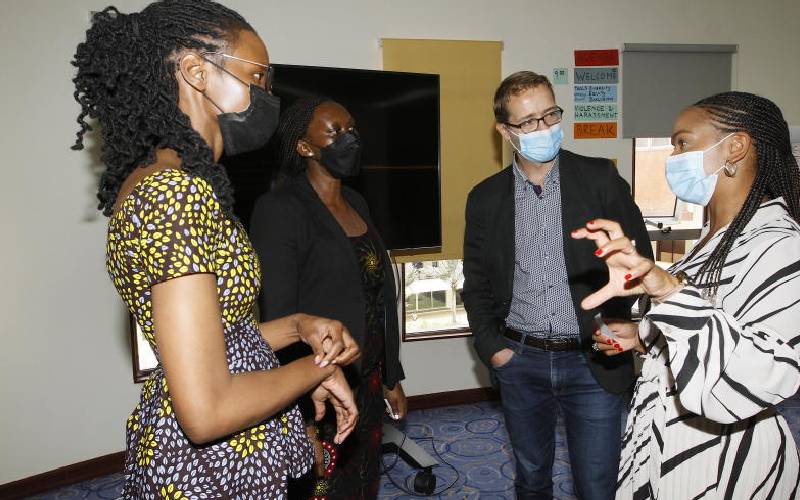×
The Standard e-Paper
Fearless, Trusted News

United Nations Global Compact Network Kenya Esther Yongo, Miriam Bomett, Kenya Association of Manufacturers Deputy Head Policy, Klaus Lehn Christensen and Kenya Legal and Ethical Issues Network on HIV/Aids Deputy Executive Director Nerema Were, chat at break-time during the Gender workshop at Movenpick hotel. [ Jenipher Wachie, Standard]
It has been almost two years since the emergence of Covid-19 upended the working lives of billions of people around the world.